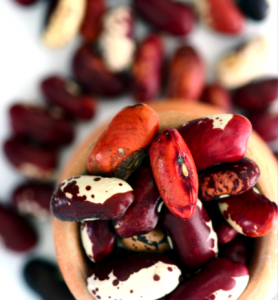Common Protein Deficiency Symptoms
Even with a wide variety of protein sources available, some people experience protein deficiency symptoms due to a lack of protein intake. Severely restrictive diets, lack of knowledge about nutrients, and even poverty can contribute to protein deficiency. Here are some of the most common symptoms:
- Lack of energy, no desire to do things
- General weakness and lethargy
- Fainting – weak feeling especially during or after a work out.
- Headache
- Thinning or brittle hair, hair loss
- Edema – A collection of fluid under the skin, which most commonly affects the legs, feet, and ankles, but can occur anywhere on the body.
- Weight issues
- Ridges or deep lines in finger and toe nails
- Skin becomes very light, burns easily in the sun
- Reduced pigmentation in the hair on scalp and body
- Skin rashes, dryness, flakiness
- Muscle soreness and weakness, cramps
- Slowness in healing wounds, cuts, scrapes, and bruises
- Bedsores and other skin ulcers
- Difficulty sleeping
- Nausea and stomach pain
- Crankiness, moodiness
- Severe depression
- Anxiety

- Legumes and beans
- Soy, mycoprotein and tofu products
- Nuts and seeds
- Sprouted seeds
- Whole grains
- Algae and seaweed
- Sprinkle nuts, seeds, or sprouts over salads and other dishes to boost protein.
- Most plant foods contain protein so eat your veggies!
- Add protein powder to shakes or smoothies. yum!
The amount of protein required by the body depends on the age, gender, weight, health and the activities that are performed by the individual. Children normally need around 0.5 gm per pound of body weight whereas adults require approximately 60gm of protein per day. It is essential for every individual to have adequate amount of protein in their body to live a healthy life. You can monitor the daily protein intake by keeping track of the food you eat each day.



Please note that even though you may think you are getting lots of protein your body may not be absorbing it which is what happened to me. Just found that out yesterday from my chiropractor so started taking digestive enzymes with each meal and can already feel a difference.
Thanks Nicky! Very true! Would love to know your symptoms and what differences you are feeling. Just curious how your chiropractor caught it? My internal specialist is the only one who saw this issue in me! And it cost me a fortune! lol I think digestive enzymes are awesome, especially if you have digestive issue such as breaking down protein. Mine was more than the protein, and I also took probiotics. Are you taking them as well?